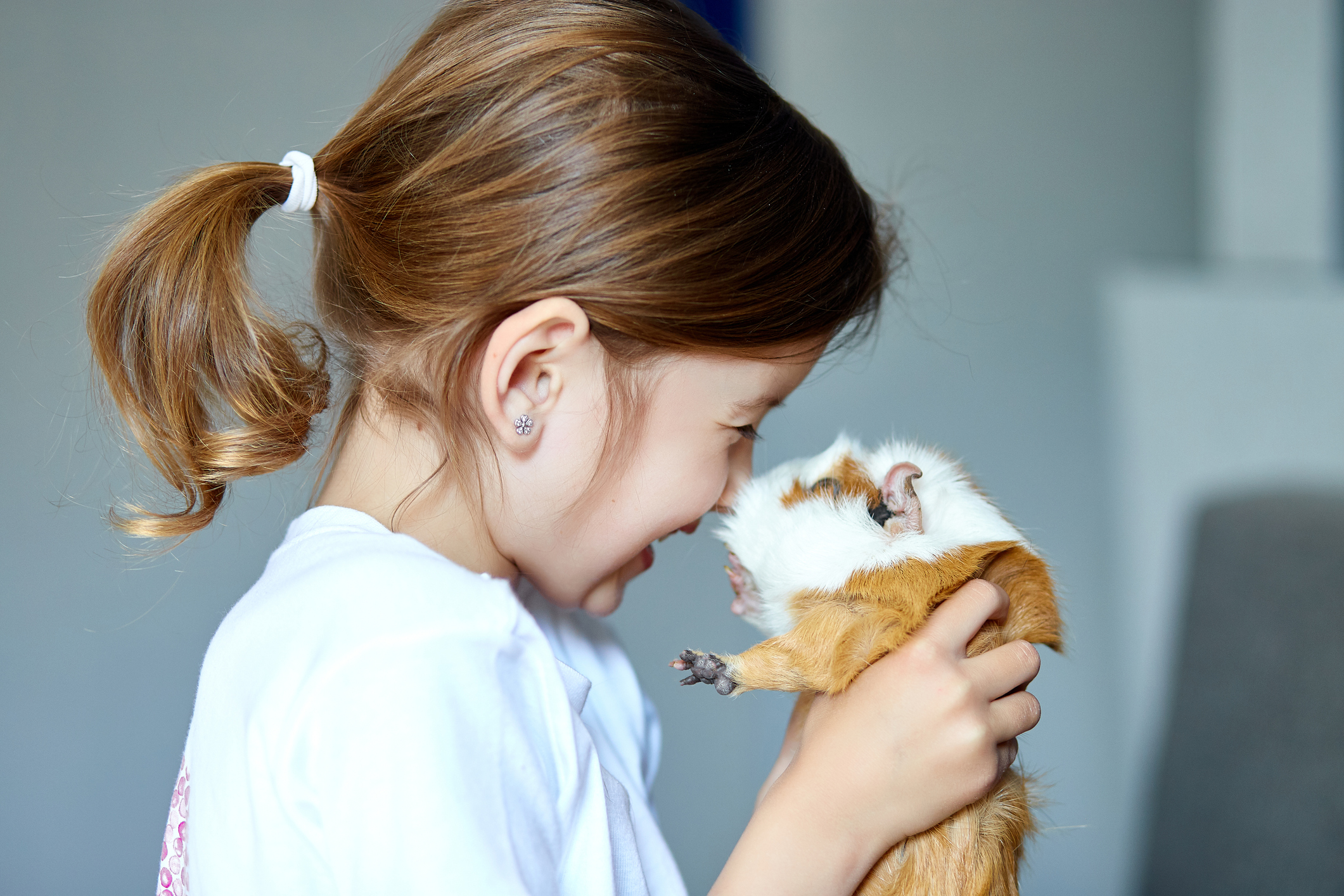[ad_1]
Pet ownership marks an important chapter in any child’s life, as it can help educate them about the circle of life.
However due to the responsibility of caring for animals, parents often opt for smaller creatures such as hamsters and guinea pigs.
Although similar in size, there are in fact notable distinctions between the two.
Hamsters vs guinea pigs — which pocket-sized pet makes the best companion for a child? Newsweek asked the experts.
Read on to find out what you should be aware of when deciding to buy a companion, from antisocial sleeping patterns to how long they live.
The Difference Between Hamsters and Guinea Pigs As Pets
Dr. Jane Tyson, the Royal Society for the Prevention of Cruelty to Animals’ (RSPCA) rodent expert, believes there is a case for both creatures being a good first pet for children.
She told Newsweek: “Animals can make wonderful companions for families and having a pet can help encourage children to be compassionate and kind towards both animals and people.
“Not only does having a pet encourage children to develop kindness and an understanding and respect for living things but the companionship can help improve a child’s social skills with people, holding and stroking a pet can also help to reduce stress and helping to care for an animal encourages responsibility.
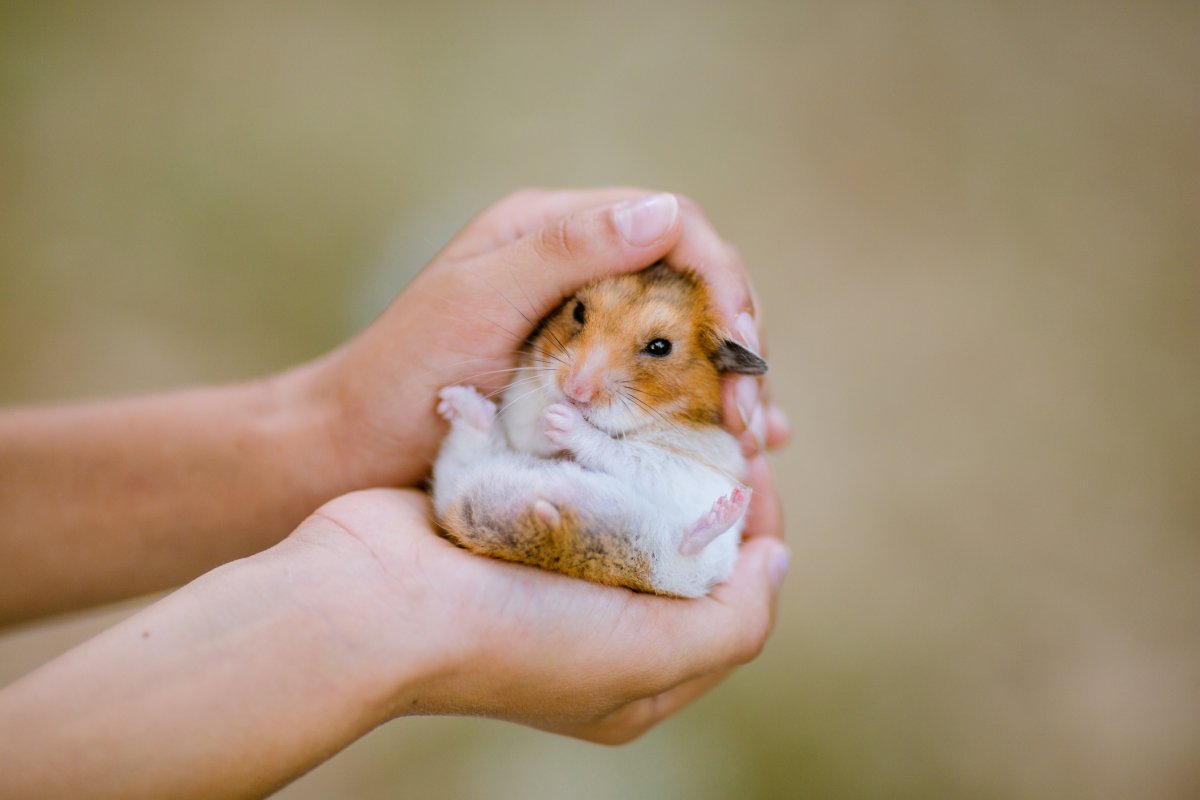
MajaArgakijeva/Getty Images
“However, a child should never be the sole carer of any pet. Sadly, we see rodents such as hamsters and guinea pigs considered as a ‘starter pet’ for children, which means that they are sometimes bought on impulse without much thought to how complex they are to care for.
“Which rodent makes the best pet for you and your family will depend on each individual family and each individual animal. Guinea pigs need to be kept in pairs, as they are sociable animals, and so any family will need to consider whether they have the space and money to care for two pets.”
Guinea Pig Vs Hamster — Factors to Consider
Size
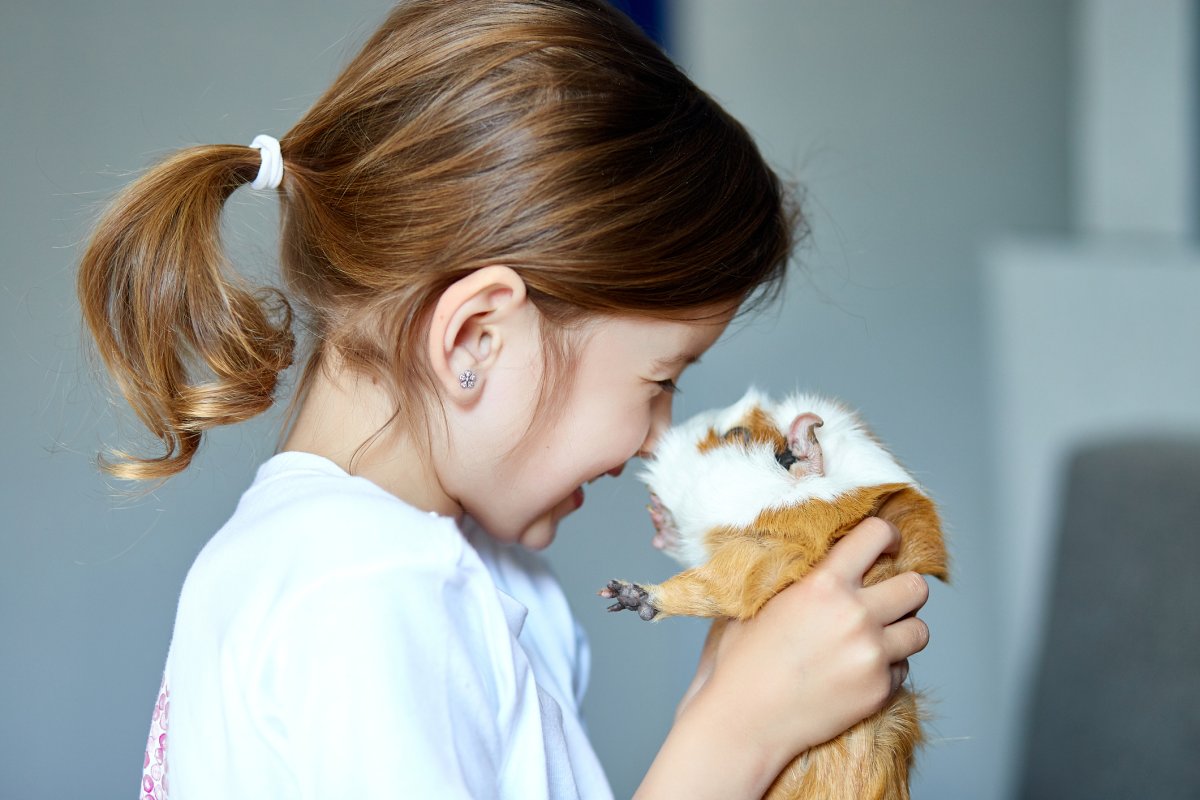
bondarillia/Getty Images
Size is easily the most immediate difference between a guinea pig and a hamster, and this is likely to be a determining factor when considering which one to buy.
Depending on the breed, an adult guinea pig (Cavia porcellus) can be much as four times larger than hamsters (Cricetinae), and weigh anywhere between 1.5 to 2.6 pounds, while hamsters can conversely weigh as little as a single ounce.
Clare Stone, of handmade wooden pet home manufactures Home & Roost, reminds prospective owners, how more petite pets may have their benefits.
She told Newsweek: “Hamsters are smaller so take up less space, eat less and generally cost less.
“Guinea pigs on the other hand are very social creatures, they much prefer to live in pairs or groups.”
However, Dr. Tyson cautions this should not mean any of the rodents should be kept in cruelly small cages.
She said: “Both hamsters and guinea pigs will need large enclosures with plenty to keep them occupied and help prevent them from getting bored.
“They will also benefit from having positive interaction with their owners everyday and will enjoy supervised time outside of their enclosure where they can safely play and explore.”
Temperament
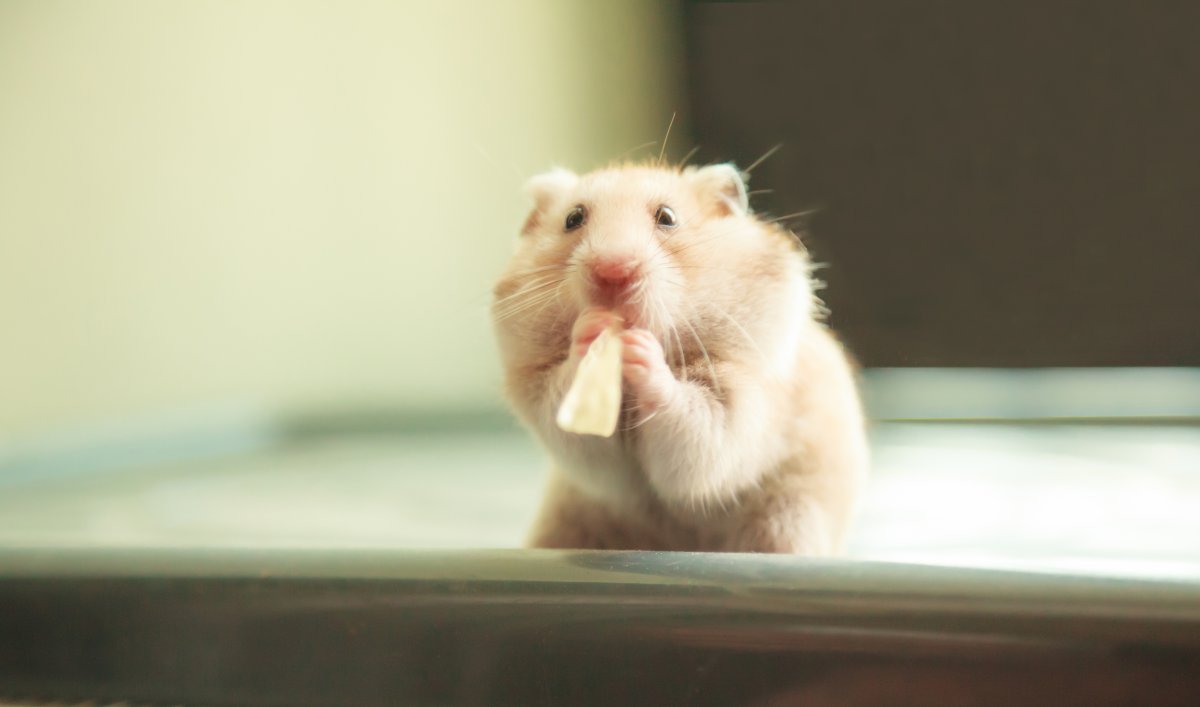
Vichai Phububphapan/Getty Images
Dr. Sy Woon, a veterinarian who works with the Humane Society of the United States (HSUS), believes hamsters are far more temperamental than guinea pigs.
She told Newsweek: “Guinea pigs would definitely be the recommended rodent over hamsters for myriad reasons; hamsters are notorious for biting and acting aggressively, including towards other fellow hamsters.
“Therefore, it would be risky for young children especially to be handling them. In comparison, guinea pigs are known to be gentler, more affectionate, and interactive.
Clare Stone also believes guinea pigs are more likely to get along with small humans. She said: “Guinea pigs on the other hand are very social creatures, they much prefer to live in pairs or groups.”
Sleeping Patterns
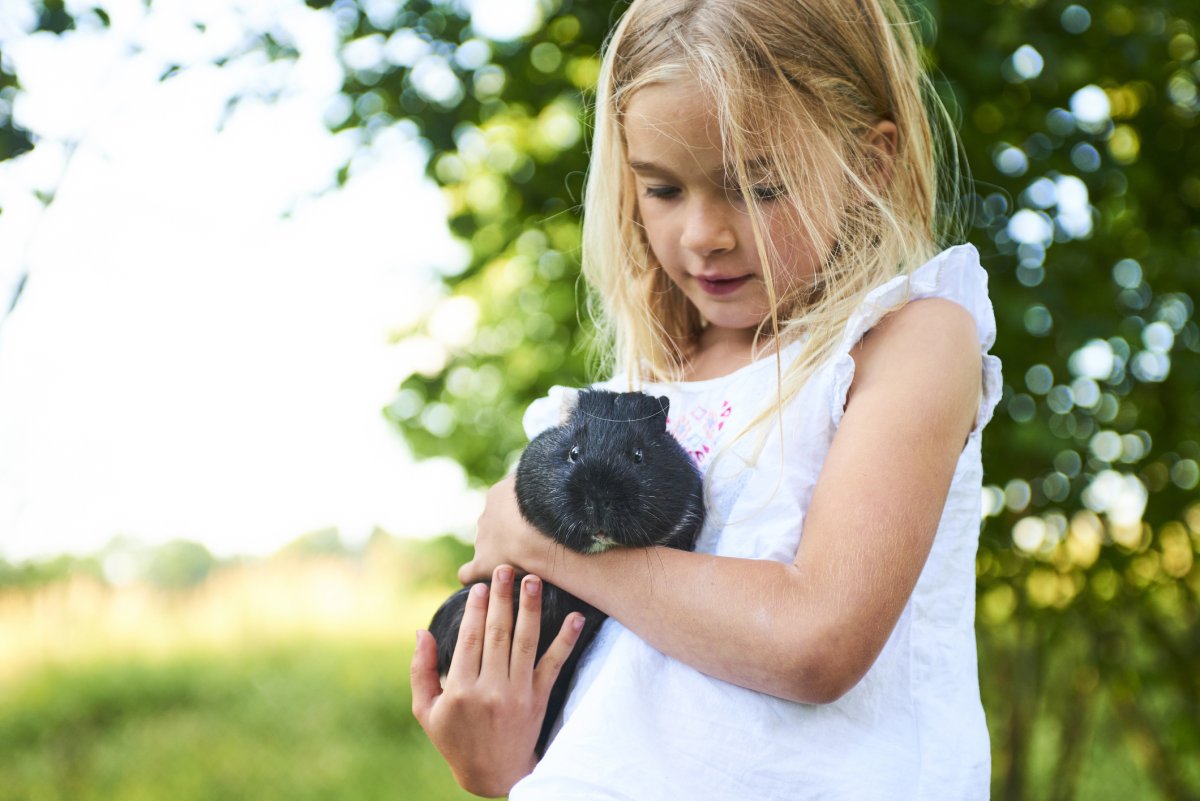
PetrBonek/Getty Images
Dr. Sy Woon stresses the importance of being aware of how the hamster is a creature of the night.
She said: “Another downside to having hamsters as pets are their nocturnal natures; understandably, this may result in sleep interruptions when they feel a nighttime urge to run on their wheel.
“It also means they would be even less amenable to handling during the daytime, which is when your child would most desire such interactions.
“Not to mention, with their miniature figure, they are known to be escape artists.”
Clare Stone points out this contrasts with guinea pigs. She said: “Crucially guinea pigs are active during the daytime when humans are whilst hamsters are up at night and sleep all day.”
Special Needs
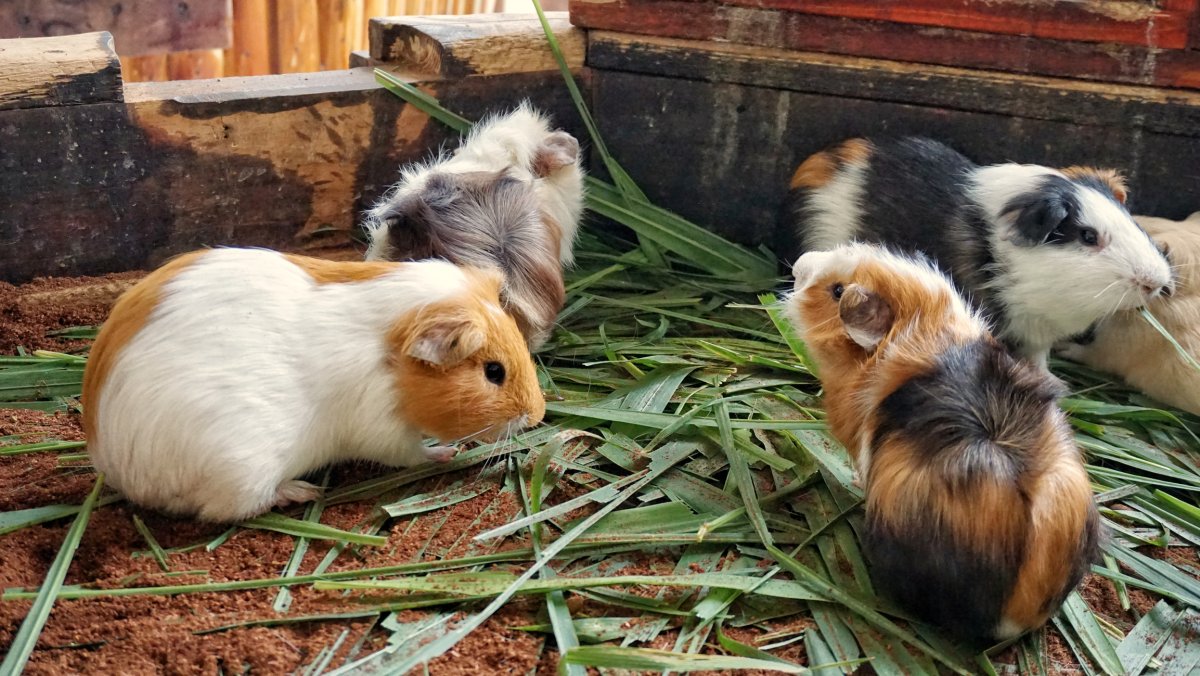
Urvashi9/Getty Images
While Dr. Sy Woon is firmly of the opinion guinea pigs would “definitely” be the recommended rodent over hamsters “for myriad reasons”, she recognises both animals may eventually require special attention.
She said: “While guinea pigs make the better pet when comparing the two, they also have special needs that must be catered to.”
For example, guinea pigs lack the capacity to synthesize their own Vitamin C, like humans so it is essential they receive external supplementation, and their diet requires a significant amount of fibre and need to be fed multiple times per day.
Guinea pigs also require frequent cage cleaning and their bedding could potentially exacerbate any allergies or asthma in children.
She added: “Despite guinea pigs and hamsters being inexpensive to purchase, it is important to consider the major medical expenses that may transpire; cancer is extremely common in these rodents and costly to treat.
“Being prone to stress, both pets are also risky surgical candidates.
Life Span
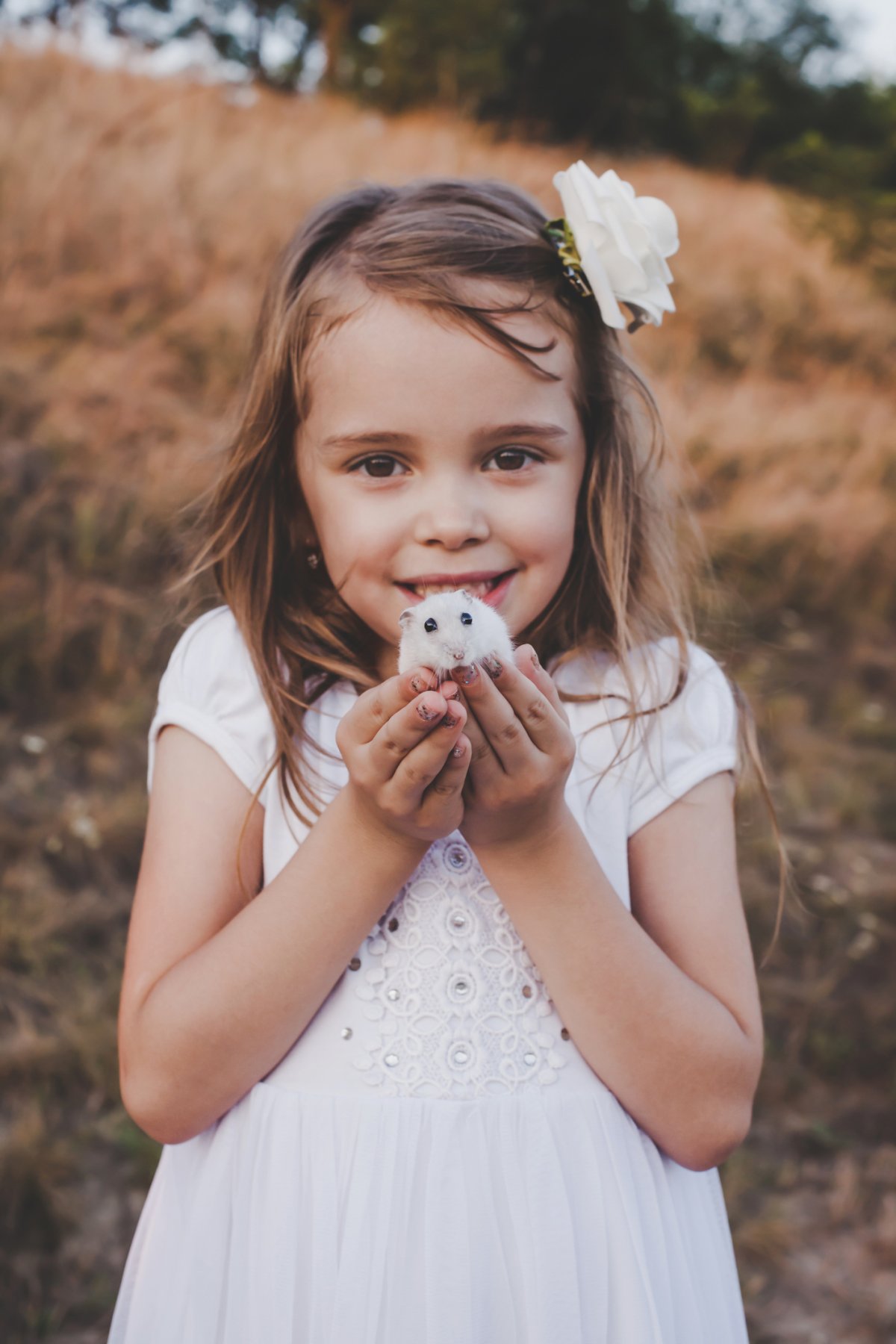
Batke/Getty Images
Dr. Sy Woon also notes “their disparate lifespans” is “an important comparison between these two pets.”
She said: “Hamsters tend to live till two to three years at most, while guinea pigs can live up to eight to 10 years.
“Parents need to consider whether a shorter lifespan will have a significant negative impact on their child who has to deal with a loss at a young age, versus the other end of the spectrum whereby having a potentially decade-long responsibility may not be ideal for all children and their parents who may end up being the ones having to look after the guinea pig when their grown child loses interest over time.”
Guinea Pigs Vs Hamsters — the Verdict?
Overall experts suggest that guinea pigs make the best pets for children due to their affectionate and active nature. They also live longer which means the there is more time for your child to bond with their pet. However, they also advised that guinea pigs are kept in pairs as they are social creatures. When choosing a pet a family must consider if they have space for two guinea pigs. On the other hand, hamsters still make wonderful additions to the family, tend to cost less and are happy on their own.
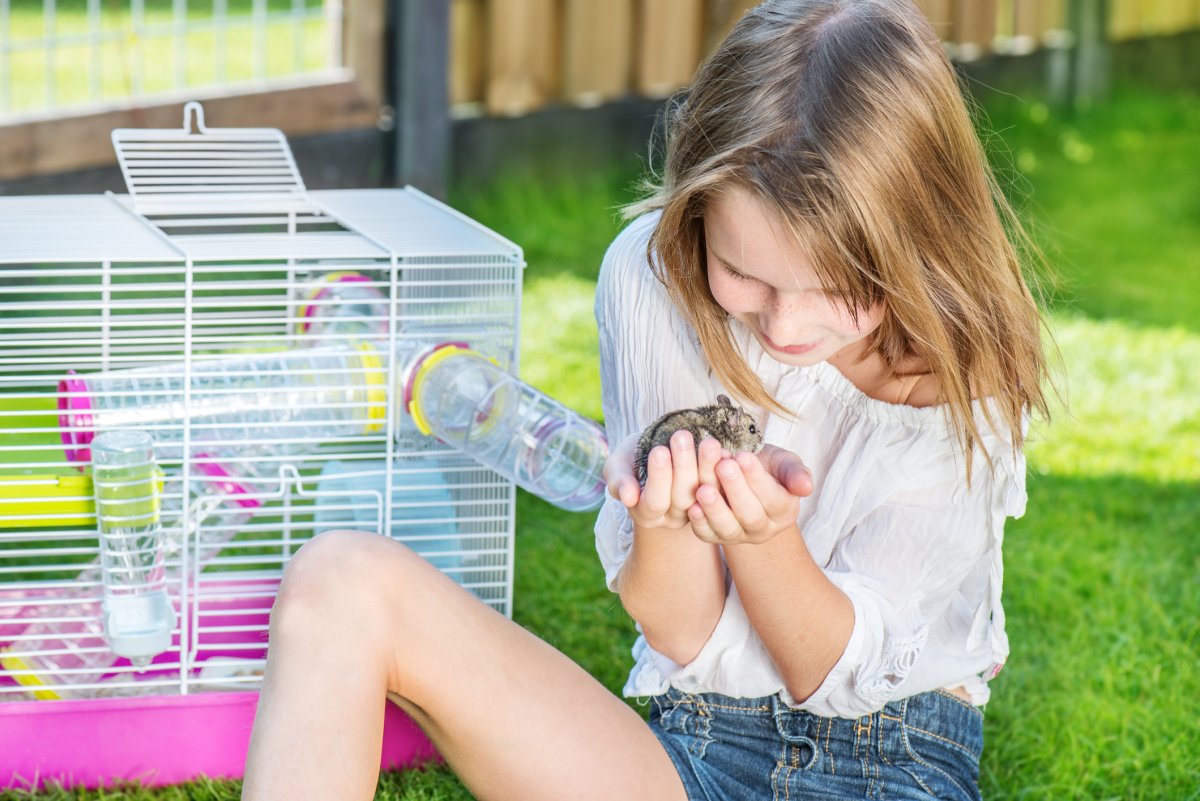
anatols/Getty Images
[ad_2]
